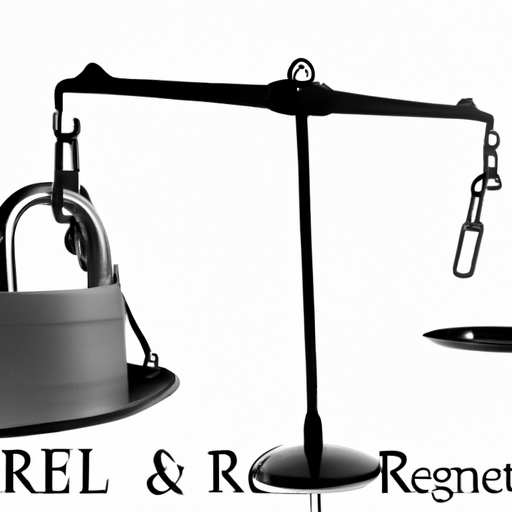Complying with HR regulations is crucial for real estate firms to ensure smooth operations and minimize legal risks. From recruiting and hiring to employee compensation and termination, real estate firms need to navigate a complex web of employment laws. This article discusses the importance of HR compliance for real estate firms and highlights key areas that they need to focus on. It provides valuable insights and practical tips to help these firms stay compliant and avoid costly legal disputes. By understanding the legal obligations and best practices in HR compliance, real estate firms can foster a positive work environment and mitigate potential legal liabilities. Read on to gain a comprehensive understanding of HR compliance for real estate firms and how it can safeguard your business.
Why HR Compliance is Important for Real Estate Firms
Real estate firms operate in a highly regulated industry, and it is essential for these companies to prioritize HR compliance. Failure to comply with HR laws and regulations can result in legal risks, potential lawsuits, damage to reputation, and costly penalties. By establishing and maintaining HR compliance, real estate firms can mitigate these risks and ensure the protection of employee rights, while also creating a positive work environment.

Mitigating Legal Risks
Compliance with HR regulations is crucial for real estate firms to mitigate legal risks. The real estate industry is subject to various federal, state, and local laws that govern employment practices, such as the Fair Labor Standards Act (FLSA), the Equal Employment Opportunity Commission (EEOC), and the Occupational Safety and Health Administration (OSHA). Failure to comply with these laws can lead to lawsuits alleging violations of minimum wage and overtime requirements, discrimination, harassment, and unsafe working conditions. By adhering to HR compliance regulations, real estate firms can minimize the risk of legal action and protect the company’s assets.
Protecting Employee Rights
HR compliance ensures that real estate firms uphold the rights of their employees. By following HR laws and regulations, such as those related to equal employment opportunity, non-discrimination, and providing a safe work environment, real estate companies can foster an inclusive and respectful workplace. Compliance with these regulations ensures that employees are treated fairly and that their rights are protected. This not only contributes to employee satisfaction and loyalty but also helps to attract and retain top talent in the competitive real estate industry.
Maintaining a Positive Work Environment
An important aspect of HR compliance in real estate firms is maintaining a positive work environment. Compliance with HR policies and procedures ensures that employees are treated with respect, have access to necessary resources, and are given opportunities for professional growth. By fostering a positive work environment, real estate firms can enhance employee morale, productivity, and overall job satisfaction. This, in turn, can lead to improved client relationships, increased sales, and a stronger market reputation.
Understanding HR Compliance in the Real Estate Industry
To effectively navigate HR compliance in the real estate industry, it is vital to understand the importance of industry-specific compliance, the laws and regulations to be aware of, and the common HR challenges faced by real estate firms.
Importance of Industry-Specific Compliance
Real estate firms operate within a unique industry that requires specific HR compliance measures. As the industry is subject to its own set of laws and regulations, such as the Real Estate Settlement Procedures Act (RESPA) and the Anti-Kickback Statute, it is crucial for real estate companies to be knowledgeable about these industry-specific requirements. Failure to comply with industry-specific compliance can result in severe consequences, including fines, loss of license, and damage to the firm’s reputation. Therefore, understanding and adhering to these regulations is essential for the success and longevity of real estate firms.
Laws and Regulations to be Aware of
Real estate firms need to be aware of a wide range of federal, state, and local laws and regulations that pertain to HR compliance. Some key laws and regulations include:
- Fair Housing Act (FHA): Prohibits discrimination in housing-related activities based on factors such as race, color, religion, sex, disability, familial status, or national origin.
- Americans with Disabilities Act (ADA): Ensures equal opportunities for individuals with disabilities, including accessibility requirements for real estate facilities and accommodations for employees with disabilities.
- Family and Medical Leave Act (FMLA): Provides eligible employees with up to 12 weeks of unpaid leave for qualified medical and family reasons, while protecting their job and benefits.
- Title VII of the Civil Rights Act: Prohibits discrimination based on race, color, religion, sex, and national origin in employment practices.
- OSHA regulations: Ensures a safe and healthy work environment by setting standards and providing guidelines for real estate firms to follow.
Understanding and complying with these laws is crucial for real estate firms to avoid legal complications and protect their employees from discrimination and unsafe working conditions.
Common HR Challenges in Real Estate Firms
Real estate firms face several HR challenges that can impact their compliance efforts. These challenges include:
- High turnover rates: The real estate industry often experiences high turnover rates, which can make it difficult to ensure ongoing compliance and training.
- Independent contractors vs. employees: Real estate firms commonly work with independent contractors, and it is crucial to correctly classify and manage these relationships to comply with employment laws.
- Changing regulations: HR laws and regulations are subject to frequent changes, and real estate firms must stay informed and adapt their policies and procedures accordingly.
- Managing remote employees: Real estate professionals often work remotely or in geographically dispersed locations, requiring additional efforts to maintain HR compliance and effective communication.
- Complex compensation structures: Real estate firms often have complex compensation structures, including commissions and bonuses, which require careful management and compliance with wage laws.
By understanding and addressing these common HR challenges, real estate firms can overcome compliance obstacles and maintain a highly functioning HR department.
Establishing HR Policies and Procedures
Establishing comprehensive HR policies and procedures is vital for real estate firms to ensure compliance and streamline HR operations. Key areas to focus on when developing HR policies and procedures include creating an employee handbook, implementing fair hiring practices, and creating an effective disciplinary process.
Developing an Employee Handbook
An employee handbook serves as a guide for employees, outlining the company’s policies, procedures, and expectations. It should include information on equal employment opportunity, anti-discrimination policies, code of conduct, compensation and benefits, and workplace safety. Additionally, the employee handbook should be regularly reviewed and updated to reflect changes in laws and regulations and to ensure alignment with the company’s evolving needs.
Implementing Fair Hiring Practices
Real estate firms must establish fair hiring practices to comply with equal employment opportunity laws and avoid discrimination. This includes conducting comprehensive background checks, ensuring job postings are accessible to all qualified candidates, conducting interviews in a non-discriminatory manner, and making hiring decisions based on merit and qualifications. By implementing fair hiring practices, real estate firms can attract diverse talent and build a reputation for inclusivity and fairness.
Creating an Effective Disciplinary Process
Having an effective disciplinary process is crucial for maintaining a positive work environment and addressing employee conduct issues promptly. Real estate firms should establish clear policies regarding employee performance expectations, disciplinary actions, and the investigation process for misconduct allegations. Implementing a fair and consistent disciplinary process helps ensure that inappropriate behavior is addressed and corrected, while protecting employee rights and preventing potential legal issues.
Ensuring Equal Employment Opportunity
Ensuring equal employment opportunity is a fundamental aspect of HR compliance for real estate firms. Real estate companies should take proactive measures to prevent discrimination in hiring, address workplace harassment, and accommodate employees with disabilities.
Preventing Discrimination in Hiring
Real estate firms must adhere to equal employment opportunity laws to prevent discrimination in the hiring process. This includes treating all candidates fairly and equally, without regard to their race, color, religion, sex, national origin, age, disability, or other protected characteristics. Companies should establish clear guidelines for the selection and interviewing process and maintain records to demonstrate that hiring decisions are based on qualifications and merit.
Addressing Workplace Harassment
Real estate firms must provide a work environment free from harassment, including sexual harassment, to comply with HR regulations. They should establish anti-harassment policies, communicate them to all employees, and provide training on recognizing and preventing harassment. Additionally, real estate firms should promptly and thoroughly investigate any claims of harassment and take appropriate disciplinary action if necessary.
Accommodating Disabilities
Under the ADA, real estate firms are required to provide reasonable accommodations to employees with disabilities, unless it causes undue hardship to the business. Accommodations may include modifications to physical workspaces, flexible work arrangements, or providing assistive technology. Real estate firms should have processes in place to identify and respond to accommodation requests, engage in the interactive process with employees, and document accommodation efforts to demonstrate compliance.
Managing Employee Compensation and Benefits
Compliance with fair wage laws, providing health and safety measures, and implementing retirement and insurance plans are essential for real estate firms to effectively manage employee compensation and benefits.
Complying with Fair Wage Laws
Real estate firms must comply with federal, state, and local fair wage laws, such as minimum wage and overtime requirements specified by the FLSA. This includes properly classifying employees as either exempt or non-exempt, tracking and compensating overtime hours, and maintaining accurate payroll records. Failure to comply with fair wage laws can result in costly lawsuits and penalties, so it is crucial for real estate firms to stay up-to-date with wage laws and ensure compliance.
Providing Health and Safety Measures
Real estate firms have a responsibility to provide a safe and healthy work environment for their employees. This includes identifying and addressing occupational hazards, providing necessary personal protective equipment, conducting regular safety training, and maintaining proper records of safety measures. Compliance with OSHA regulations not only protects employees from workplace injuries and illnesses but also helps real estate firms avoid potential legal consequences.

Implementing Retirement and Insurance Plans
Real estate firms should consider providing retirement and insurance plans to attract and retain talented employees. Compliance with relevant laws, such as the Employee Retirement Income Security Act (ERISA) and the Affordable Care Act (ACA), is crucial. Real estate firms must communicate benefit options clearly, ensure employees have access to necessary information, and properly administer these plans to comply with regulatory requirements.
Maintaining Proper Employee Records
Maintaining accurate and up-to-date employee records is essential for real estate firms to demonstrate HR compliance and protect themselves from legal risks. This includes proper record-keeping, managing personnel files and documentation, and understanding storage and retention requirements.
Importance of Accurate Record-Keeping
Accurate record-keeping is crucial for real estate firms to demonstrate compliance with HR regulations. It involves maintaining records related to employee information, such as employment contracts, payroll records, performance evaluations, and training records. Proper record-keeping facilitates compliance audits, helps resolve disputes, supports decision-making processes, and ensures that information is readily accessible when required.
Managing Personnel Files and Documentation
Real estate firms should establish clear guidelines for managing personnel files and documentation. This includes maintaining confidentiality, organizing files in a structured format, and properly documenting key employment-related events, such as hiring, promotions, disciplinary actions, and terminations. Proper management of personnel files ensures compliance with privacy laws and enables the efficient retrieval of information when needed.
Storage and Retention Requirements
Real estate firms must comply with storage and retention requirements for employee records. This involves securely storing records in compliance with relevant privacy laws, ensuring that access is limited to authorized personnel, and adhering to specified retention periods. Compliance with storage and retention requirements not only helps protect sensitive employee information but also ensures that records are available if legal issues arise or during compliance audits.
Effective Employee Training and Development
Investing in employee training and development is essential for real estate firms to maintain HR compliance, enhance performance, and stay up-to-date with evolving regulations.

Importance of Continuous Training
Real estate firms should prioritize continuous training to keep employees informed about HR laws and regulations. This includes providing regular updates on changes in legal requirements, conducting training sessions on topics such as equal employment opportunity, workplace harassment prevention, and safety protocols. Continuous training helps employees stay compliant, improve their skills, and ensures that real estate firms stay ahead of potential compliance risks.
Ongoing Education on Compliance
In addition to continuous training, ongoing education on compliance is crucial for real estate firms. This involves providing resources and information related to HR compliance, such as newsletters and online portals with relevant articles and updates. By encouraging ongoing education, real estate firms can ensure that employees stay informed about compliance best practices and are equipped to adhere to HR regulations.
Improving Employee Skills and Performance
Employee training and development play a vital role in improving overall skills and performance within a real estate firm. By offering development programs, such as sales training, negotiation skills workshops, and leadership development, employers can help employees enhance their abilities and contribute to the success of the organization. Skilled and capable employees not only boost productivity but also contribute to a positive work environment and client satisfaction.
Handling Employee Relations and Conflict
Properly addressing employee relations and conflict is crucial for real estate firms to maintain a harmonious work environment and address grievances effectively.
Addressing Grievances and Complaints
Real estate firms must establish procedures for addressing employee grievances and complaints. This involves ensuring that employees have accessible channels to report their concerns, conducting thorough and impartial investigations, and taking appropriate action to address grievances. By addressing grievances and complaints promptly and effectively, real estate firms can mitigate potential legal risks, maintain employee morale, and foster a positive work environment.
Mediating Workplace Disputes
Workplace disputes can arise in real estate firms, and it is essential to address these conflicts promptly and impartially. This may involve engaging in mediation to facilitate open communication and reach mutually satisfactory resolutions. Effective mediation can prevent conflicts from escalating, preserve working relationships, and maintain the overall productivity of the organization.
Implementing Conflict Resolution Strategies
Real estate firms should have conflict resolution strategies in place to manage disputes and maintain a productive work environment. This includes training HR staff and managers in conflict resolution techniques, establishing clear policies for resolving conflicts, and providing resources for employees to seek support and guidance. By implementing effective conflict resolution strategies, real estate firms can minimize the negative impact of conflicts, promote collaboration, and maintain a cohesive team atmosphere.
Conducting HR Audits and Assessments
Conducting regular HR audits and assessments is vital for real estate firms to identify compliance gaps, revise policies and procedures, and ensure ongoing compliance.
Identifying Compliance Gaps and Weaknesses
By conducting HR audits and assessments, real estate firms can identify areas where they may be falling short in terms of compliance. These audits involve reviewing HR policies and procedures, personnel files, training records, and payroll documents to identify any areas of non-compliance or potential weaknesses. Identifying compliance gaps early allows real estate firms to rectify issues, establish best practices, and prevent potential legal risks.
Revising Policies and Procedures
Based on the findings from HR audits and assessments, real estate firms should revise policies and procedures to address compliance gaps and strengthen HR operations. This may involve updating employee handbooks, implementing additional training programs, modifying disciplinary processes, or introducing new HR initiatives to ensure ongoing compliance. Regular policy reviews and updates provide real estate firms with opportunities to adapt to changing regulations and best practices.
Ensuring Constant Compliance
Achieving HR compliance is an ongoing effort for real estate firms. It requires constant monitoring, review, and revision of HR policies and procedures to remain compliant with evolving laws and regulations. By incorporating compliance into the fabric of the organization’s culture, real estate firms can ensure constant compliance and reduce the risk of legal complications.
Frequently Asked Questions about HR Compliance for Real Estate Firms
What are the consequences of non-compliance in HR?
Non-compliance with HR laws and regulations can have serious consequences for real estate firms. Consequences may include lawsuits, financial penalties, damage to reputation, loss of license or accreditation, and the disruption of business operations. It is essential for real estate firms to prioritize compliance to avoid these negative outcomes.
How often should employee records be updated?
Employee records should be updated regularly to ensure accuracy and compliance with HR regulations. It is recommended to review and update employee records when significant changes occur, such as promotions, transfers, disciplinary actions, and performance evaluations. Additionally, real estate firms should conduct periodic audits of employee records to identify any gaps or inconsistencies.
What are some common HR compliance mistakes to avoid?
Some common HR compliance mistakes that real estate firms should avoid include:
-
Misclassifying employees: It is essential to correctly classify employees as either exempt or non-exempt to comply with wage and hour laws.
-
Failure to provide proper training: Real estate firms should provide comprehensive training on HR policies, compliance requirements, and prevention of discrimination and harassment.
-
Lack of documentation: Proper record-keeping is crucial for HR compliance. Failing to document key employment events and retain necessary records can lead to compliance issues.
-
Inconsistent application of policies: Real estate firms should ensure that HR policies and procedures are consistently applied across the organization to prevent claims of discrimination or favoritism.
-
Ignoring industry-specific compliance: Real estate firms must be aware of and comply with industry-specific HR regulations, such as those related to RESPA and fair housing laws, to avoid legal complications.
By avoiding these common mistakes, real estate firms can strengthen their HR compliance efforts and protect their employees and business from potential legal risks.
In conclusion, HR compliance is of paramount importance for real estate firms to mitigate legal risks, protect employee rights, and maintain a positive work environment. By understanding industry-specific compliance, staying updated on relevant laws and regulations, and implementing effective HR policies and procedures, real estate firms can ensure equal employment opportunity, manage employee compensation and benefits, maintain proper employee records, provide ongoing training and development, handle employee relations and conflicts, conduct HR audits, and address frequently asked questions about HR compliance. Prioritizing HR compliance not only helps real estate firms avoid legal consequences but also attracts top talent, enhances productivity, and strengthens the overall success of the organization.
